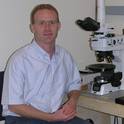| Present | Assistant Professor of Earth Sciences, University of Maine ‐ School of Earth and Climate Sciences | |
|
|
||
Disciplines
Contact Information
Phone: 207-581-2153
Fax: 207-581-2202
Address:
Department of Earth Sciences
5790 Bryand Global Sciences Center
Room 119
University of Maine
Orono, Maine 04469-5790
Email:
